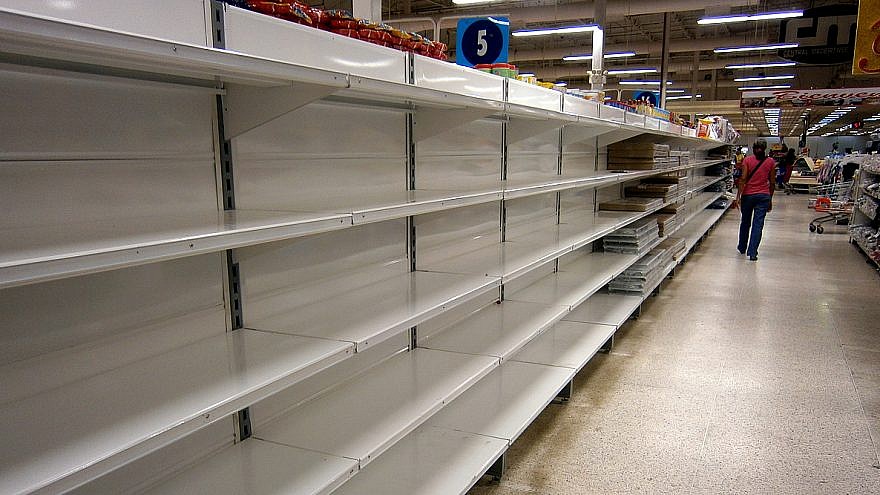The economic and political unrest currently taking place in Venezuela has left the country’s Jewish community in a “wait and see mode,” as residents hope for an end to the current political crisis that will hopefully improve living conditions for them.
Juan Guaidó, the president of the Venezuela National Assembly, declared himself the interim leader of Venezuela on Jan. 23 after President Nicolás Maduro was sworn in for a second term that same month in what was widely believed to be a fraudulent contest. Under Maduro, the country has fallen into turmoil, with inflation that is expected to rise to 10 million percent this year. Venezuela has also been experiencing a humanitarian crisis with food and medicine shortages, as well as an economic and political calamity that has resulted in 3 million people fleeing the country as migrants and refugees, according to The Washington Post.
Measles and diphtheria—diseases once controlled in Venezuela—have re-emerged, and Venezuela is now the only country in South America to have regressed to its infant mortality levels from the 1990s, according to new research published in the Lancet Global Health journal. Jenny Garcia, the lead researcher on the study, blamed the regression on government cuts to health-care funding.
Those problems are only the tip of the iceberg, said Alex Rosenberg, a Venezuelan Jew now living in the United States.
“It is years of corruption,” he told JNS. “It’s years of failed economic policies, it’s printing money, it’s regulation that strangles businesses, or rather, any business that is not government-owned. Most businesses are not thriving or doing well right now. Employment is low; people are leaving for security and business reasons. I saw people who really struggled and needed social services from the community to put food on the table.”
He added, “It’s been 20 years of a single party ruling and a single government ruling the country. At this point, even if it wasn’t for these failed policies and the authoritarian rule and everything else, a change of government should have happened already. It’s like the old saying that politicians are like diapers; they should be changed often and for the same reason.”
Born in Venezuela’s capital of Caracas, Rosenberg came to the New York three-and-a-half years ago to have surgery for a sports-related injury. He ended up staying after the rehabilitation process took longer than expected and an opportunity arose for him to obtain a green card. He also met his wife while in the United States. Many of his relatives continue to live in Venezuela, including his mother, older sister, brother-in-law, aunt, uncle and cousins, and he said he still has what remains of a clothing business in his home country.
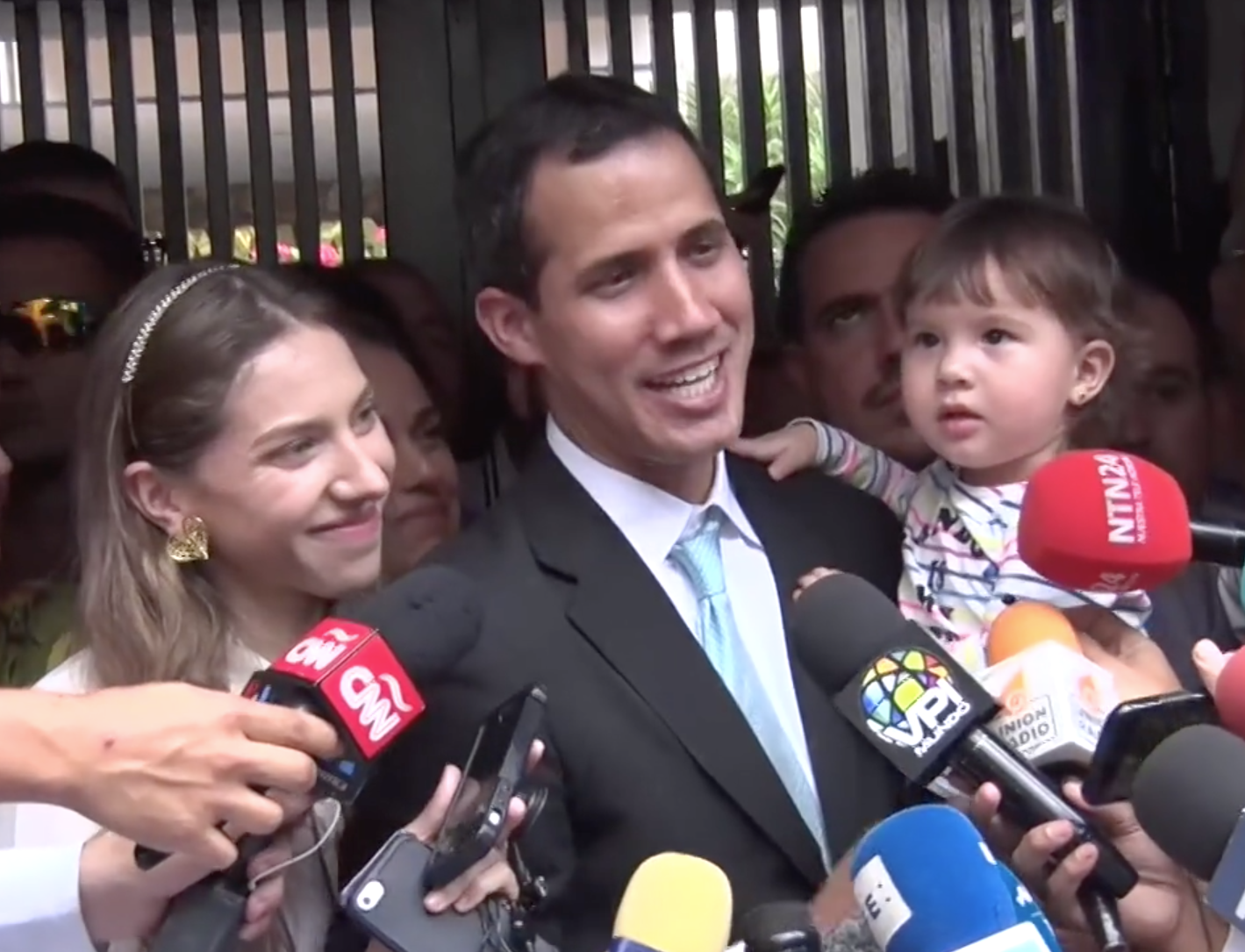
In late January, Israeli Prime Minister Benjamin Netanyahu threw his support behind Guaidó, making Israel the first Middle Eastern country to recognize him as Venezuela’s new leader. A growing list of nations followed suit, including the United States, Canada and most Latin America countries, such as Venezuela’s neighbors Brazil and Colombia.
Guaidó welcomed Netanyahu’s support on Twitter, writing that “74 years ago the Auschwitz extermination camp was liberated, and today, as our country fights for its independence, we are thankful for the support we received from the Prime Minister of Israel Benjamin Netanyahu.”
“Anti-Semitism was used as a political tool in the past by Chávez and continued with Maduro, particularly in the official media,” said Dina Siegel Vann of the American Jewish Committee.
Rosenberg said that under Guaidó’s leadership, “I do think that freedoms would be a lot better, respected, [and] I think that there would be no more rhetoric of dismissiveness with the Jewish community or any other religious or national group as it has been during the last 20 years. With the current [Maduro] government, they do have a policy of dismissive language [towards the Jewish community].”
‘A deep sense of vulnerability’
Maduro and his government have been accused of promoting anti-Semitic and extreme anti-Israeli views. The country has had expanding relations with the Iranian regime, which dates back to Maduro’s predecessor Hugo Chávez, as well as with Iran’s terror proxy Hezbollah. Israeli officials have until recently kept silent on the unrest in Venezuela due to fears that it might backfire and result in violence towards the Jewish community in the Latin American country after Maduro broke off diplomatic ties with the United States.
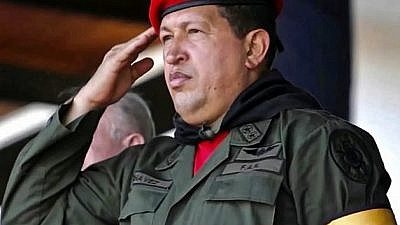
“So far, the 6,000 Venezuelan Jews who remain in the country [from an original estimated 25,000] are safe, but affected like the rest of their fellow citizens by the same political, economic and social ills haunting the country as a whole,” Dina Siegel Vann, director of the American Jewish Committee’s (AJC) Arthur and Rochelle Belfer Institute for Latino and Latin American Affairs in Washington, D.C., told JNS. “The lack of relations with Israel since 2009, the use of anti-Semitism as a political tool resulting in violence against institutions in the past and attacks in the media created a deep sense of vulnerability resulting in the exodus of two-thirds of the community.”
She continued, “In the current environment, with so much confusion and possible changes on the horizon, the community remains in a ‘wait and see’ mode, with active channels of communication to the many domestic and international actors [including government and opposition, international organizations], which can ensure its present and future safety and well-being. AJC remains in close contact with our institutional partners from CAIV [Federation of Jewish Communities of Venezuela] to understand developments on the ground and to ensure the community’s well-being.”
Israel’s war against the Palestinian terror group Hamas in the Gaza Strip in the winter of 2008-09, also known as “Operation Cast Lead,” was a turning point for the treatment of Venezuela’s Jews, said Rosenberg. They faced discrimination from anti-Israel activists in Venezuela, and synagogues were vandalized.
Rosenberg recalled the largest and oldest Sephardic synagogue in Caracas being ransacked and desecrated in 2009. He said people automatically assumed that it was government-sponsored attack; evidence was later found that the government was trying to extort the Jewish community in some way.
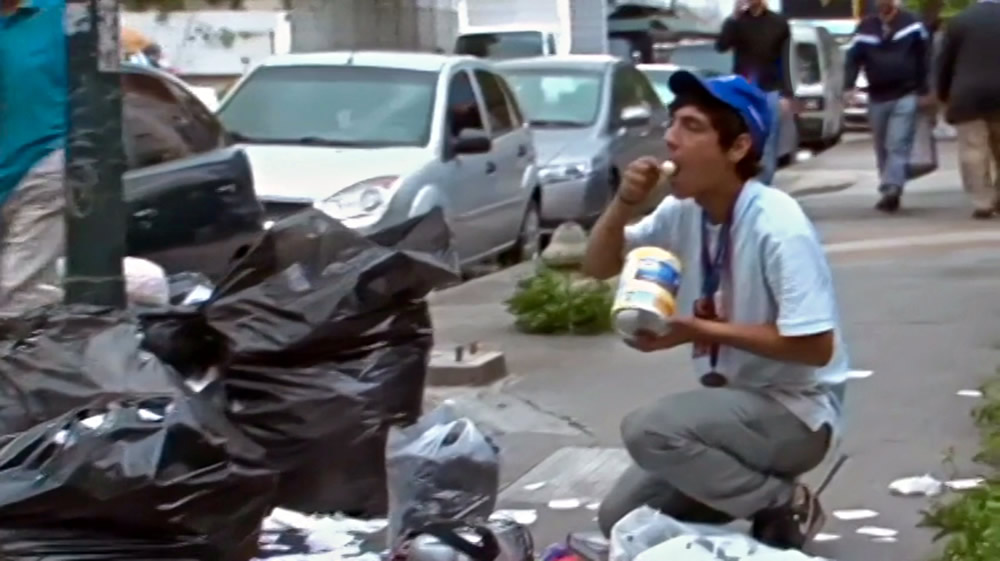
The prejudice against Venezuela’s Jews spiked when then-President Chávez, known for his pro-Palestinian sentiments, demanded that the Israeli ambassador leave Venezuela over the “Holocaust that Israel was perpetrating in Gaza.” Since 2009, Venezuela has had no diplomatic relations with Israel.
“Chávez used to come on TV, and he once cursed the State of Israel, on national television,” Rosenberg remembered about Chávez’s rule. “At another time, he said those who killed Christ were the same ones who killed [former Venezuelan military and political leader] Simón Bolívar, who is viewed locally in Venezuela as some sort of G-d. Many other things, too, but basically he had a strict alignment with Iran and Palestinian causes.”
Siegel Vann explained that “until Chávez’s arrival, anti-Semitism in Venezuela was negligible, and remained either in the margins and/or was considered politically incorrect. Attacks in the official media allowed for the permanent and systematic channeling of anti-Israel and anti-Jewish diatribes. And vandalism against Jewish institutions has been used as measures of intimidation. Venezuela’s severing of relations with Israel in 2009 brought this chapter to new heights.
“Anti-Semitism was used as a political tool in the past by Chávez and continued with Maduro, particularly in the official media. Israel has been linked together with the U.S. with conspiratorial implications. With Iran and Venezuela entering a strategic relationship in 2005, Jews and Israel became the focus of systematic attacks.
“Today, these attacks have diminished as the government’s attention is focused on survival, and it does not want to open a new front by being accused of anti-Semitism.”
‘Everybody sends their kids away’
Rosenberg noted that he thinks the government discourse against the Jewish community has not died down, but simply that Jews in the country are forced to “play nice because most of the kashrut-related implements and food that is imported for Pesach and other holidays has to be authorized by the government.”
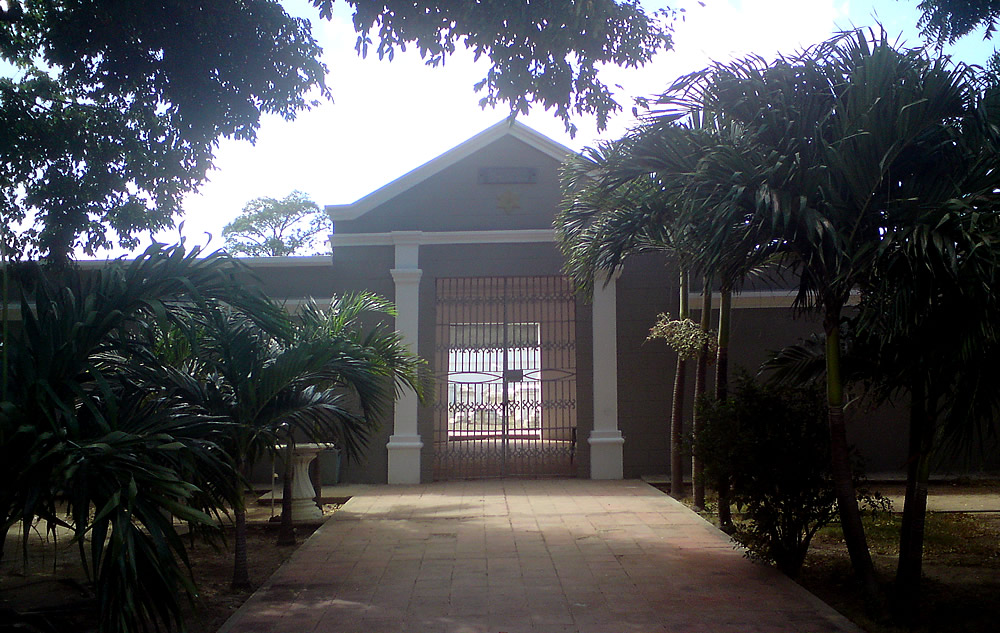
Venezuela’s small Jewish community continues to live in a besieged state, in a sense, and are sometimes targeted because they may appear as if are doing well from an economic standpoint, even though they are suffering like the rest of the country, said Rosenberg. For example, Jews who wear nice attire to go to the synagogue on Shabbat fear being robbed or kidnapped, an unfortunately common occurrence in Latin American and South American countries.
The younger generations tend to leave Venezuela after they graduate high school if the family has the economic means to support them abroad, be it to Europe, Spain, the United States or Israel, according to Rosenberg. His sister is a doctor and not licensed to work outside of Venezuela. If she decides to leave the country, like so many others she will have to start her career from the beginning, including re-doing her residency. So for now, has decided to stay in her home country, though made sure that her two college-aged children left.
Rosenberg said “most families don’t want to worry about their kids’ well-being, opportunities and safety because of the turmoil that is constantly happening and brewing, and so they send the kids away. Everybody sends their kids away.”
With the Jewish population in Venezuela continuously shrinking, the community is looking more and more “lifeless” and “empty,” he said, as they wait for a political shift that may play in their favor.


























